- Home
- slideshows
- miscellaneous
- As tensions simmer with Russia, NATO wants to up its game in the waters around Europe
As tensions simmer with Russia, NATO wants to up its game in the waters around Europe
The Baltic Sea, bordered by six NATO member countries and with Russia's second-largest city, St. Petersburg, at its eastern end, has always been a busy area.

NATO countries along the Baltic have sought a more robust presence, and Germany has taken the lead.
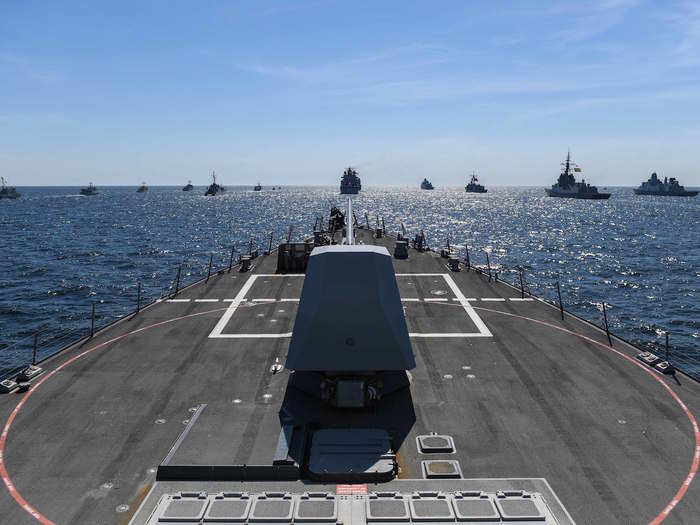
Among NATO members, Germany, which has been criticized for the paucity of its defense spending and the quality of its armed forces, has taken the lead and tried to bring NATO and the EU closer together on Baltic security.
Vice Adm. Rainer Brinkmann, deputy chief of the German navy, said in September that Russia was the "one main challenge" in the Baltic and that Western partners "must take appropriate measures to cope" and "to prevent the Baltic Sea from being a 'mare clausum,'" or "closed sea."
Like its neighbors, Russia has legitimate reasons to be in the Baltic, but the number of actors there, each with their own national and commercial interests, make it a delicate situation, according to Christopher Skaluba, director or the Transatlantic Security Initiative at the Atlantic Council.
"I think [the Russians] know that aggressive actions in the Baltic are likely to get the attention, in a way they probably didn't want, of the NATO nations and Sweden and Finland."
"The Baltic is pretty small place. There's a lot of players. That piece of it gets really ugly really quick," Skaluba told Business Insider in October. "I think for lots of reasons, there are more incentives to avoid [conflict] than there are to ... catalyze it."
A new battle of the Atlantic.
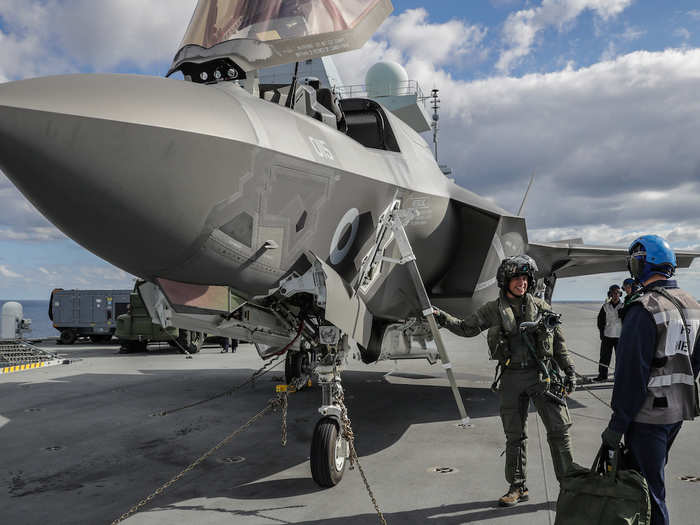
Russia's navy is increasingly active in the North Atlantic, and though the level of that activity and the size of Russia's navy don't appear to reach that of the Cold War, it has set NATO on edge.
Growing tension between NATO members and Russia in the Atlantic has been called "the fourth battle of the Atlantic," following World War I and II and the Cold War.
The UK in particular has struggled to keep up, calling on NATO allies to help track Russian subs thought to be lurking in and around British waters.
"In 2010, a Royal Navy ship was called on just once to respond to Russian navy ships approaching UK territorial waters. Last year we had to respond 33 times," the UK's then-defense minister, Gavin Williamson, said in May 2018.
The Royal Navy has built new aircraft carriers, equipping them with Britain's first F-35s, and acquired US-made maritime patrol aircraft after scrapping its Nimrod patrol aircraft in 2010.
The UK and its allies in Europe want to keep "a critical choke point" between them open.
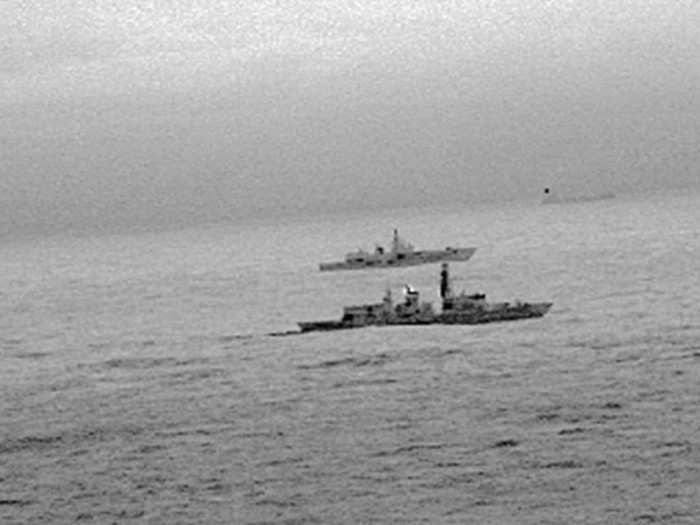
While any conflict in the Atlantic today is likely to look much different than previous battles, it's likely to involve the English Channel and waters around it, especially the North Sea — at least that's the concern of the five European countries who effectively revived the Cold War-era "Channel Committee" this month.
The pact signed on Thursday by senior navy leaders from Germany, France, the UK, Belgium, and the Netherlands pledges to "harmonize" naval purchasing plans, potentially to include common procurement, according to Defense News.
But the countries also want to increase personnel exchanges and joint training and eventually recognize the professional qualifications of service members across the group.
"The Channel area is the front door to Central Europe and an important gate to the Baltic Sea," the text of the pact says. "It is the critical choke point for the maritime traffic between the United Kingdom and continental Europe."
The committee is also another military tether between mainland Europe and the UK, whose future relations with the rest of the continent remain in doubt amid the turmoil of Brexit.
The Mediterranean has also become a venue for what the US and others see as an emerging great-power competition.
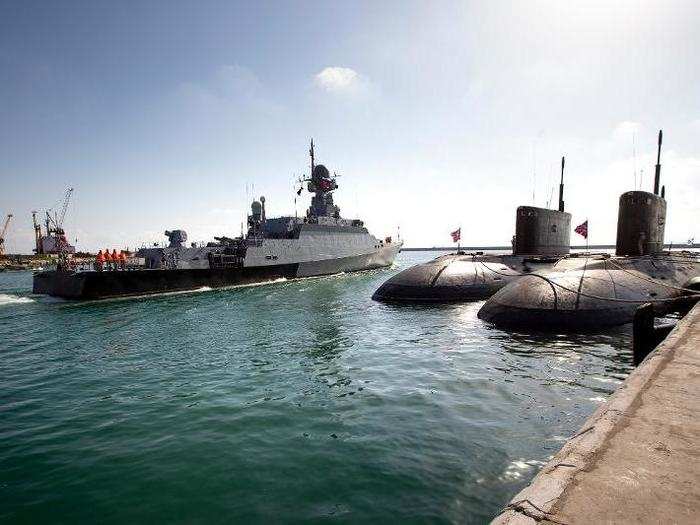
NATO members in southern Europe have been focused on immigration from the Middle East and North Africa and the threat of terrorism emanating from those regions.
But Russian naval forces are a constant presence in the Mediterranean, traveling to and from Moscow's bases in the Black Sea and and its base in Tartus, Syria, which is Russia's only such facility outside the territory of the former Soviet Union.
With the ongoing civil war in Syria, the eastern Mediterranean has also become a venue for military operations, with Russian subs demonstrating their new ability to strike targets on land with missiles.
The Russian presence around the Mediterranean and Black seas, Iran's presence in Syria, and antagonistic intra-alliance relations with Turkey all present security challenges for NATO, according to a recent Atlantic Council report.
"As the south becomes more congested and contested, and great-power competition intensifies, NATO defense, deterrence, and containment mission in the south is increasingly urgent and more complex," the report states.
The lack of a strategy in the Mediterranean could have more serious consequences for the alliance as a whole, according to one deputy secretary general.
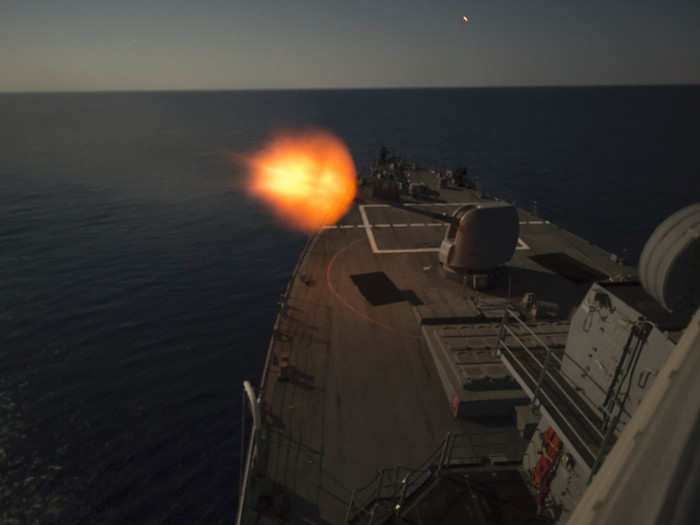
NATO has made a lot progress improving its defense and deterrence against Russia since 2014, "but it was more talk than action when it came to addressing problems in the south," Alexander Vershbow, a distinguished fellow at the Atlantic Council and coauthor of the report, said during its presentation last month.
"This theme figured prominently in my farewell address to the North Atlantic Council three years ago, and unfortunately the situation hasn't changed all that much since then," added Vershbow, who was deputy secretary general of NATO and US ambassador to Russia.
According to the report, "many of the conventional defense and deterrence challenges associated with NATO's east are now reemerging in the south," including enhanced Russian anti-access/area-denial capabilities, provocative actions in the Black Sea, and hybrid activity on the ground.
Though NATO has taken steps to remedy its shortcomings in the Mediterranean — such as setting up a "hub of the south" at Joint Forces Command in Naples, Italy — establishing a maritime-focused enhanced southern presence there could be a way to counter Russia and sharing the burden of doing so among members, Vershbow said.
"Russia is back with a vengeance in the eastern Mediterranean and in the Black Sea," which adds a geopolitical dimension to NATO's need to project stability and bolster defense and deterrence, Vershbow added.
"The lack of an effective southern strategy could put alliance solidarity at risk if the publics in the southern NATO countries see the alliance as failing to address what they consider to be their priority concerns," Vershbow said. "It could undermine their willingness to share the burdens of collective defense against Russia, and everybody loses in that scenario."
Popular Right Now
Popular Keywords
Advertisement